- Home
- Quizzes
- My Quiz Activity
- Newsletters
- Sports Betting
- MY FAVORITES
- Add Sports/Teams
- SPORTS
-
NFL
- NFL Home
- Arizona Cardinals
- Atlanta Falcons
- Baltimore Ravens
- Buffalo Bills
- Carolina Panthers
- Chicago Bears
- Cincinnati Bengals
- Cleveland Browns
- Dallas Cowboys
- Denver Broncos
- Detroit Lions
- Green Bay Packers
- Houston Texans
- Indianapolis Colts
- Jacksonville Jaguars
- Kansas City Chiefs
- Las Vegas Raiders
- Los Angeles Chargers
- Los Angeles Rams
- Miami Dolphins
- Minnesota Vikings
- New England Patriots
- New Orleans Saints
- New York Jets
- New York Giants
- Philadelphia Eagles
- Pittsburgh Steelers
- San Francisco 49ers
- Seattle Seahawks
- Tampa Bay Buccaneers
- Tennessee Titans
- Washington Commanders
-
MLB
- MLB Home
- Arizona Diamondbacks
- Atlanta Braves
- Baltimore Orioles
- Boston Red Sox
- Chicago White Sox
- Chicago Cubs
- Cincinnati Reds
- Cleveland Guardians
- Colorado Rockies
- Detroit Tigers
- Houston Astros
- Kansas City Royals
- Los Angeles Angels
- Los Angeles Dodgers
- Miami Marlins
- Milwaukee Brewers
- Minnesota Twins
- New York Yankees
- New York Mets
- Oakland Athletics
- Philadelphia Phillies
- Pittsburgh Pirates
- San Diego Padres
- San Francisco Giants
- Seattle Mariners
- St. Louis Cardinals
- Tampa Bay Rays
- Texas Rangers
- Toronto Blue Jays
- Washington Nationals
-
NBA
- NBA Home
- Atlanta Hawks
- Boston Celtics
- Brooklyn Nets
- Charlotte Hornets
- Chicago Bulls
- Cleveland Cavaliers
- Dallas Mavericks
- Denver Nuggets
- Detroit Pistons
- Golden State Warriors
- Houston Rockets
- Indiana Pacers
- Los Angeles Clippers
- Los Angeles Lakers
- Memphis Grizzlies
- Miami Heat
- Milwaukee Bucks
- Minnesota Timberwolves
- New Orleans Pelicans
- New York Knicks
- Oklahoma City Thunder
- Orlando Magic
- Philadelphia 76ers
- Phoenix Suns
- Portland Trail Blazers
- Sacramento Kings
- San Antonio Spurs
- Toronto Raptors
- Utah Jazz
- Washington Wizards
-
NHL
- NHL Home
- Anaheim Ducks
- Arizona Coyotes
- Boston Bruins
- Buffalo Sabres
- Calgary Flames
- Carolina Hurricanes
- Chicago Blackhawks
- Colorado Avalanche
- Columbus Blue Jackets
- Dallas Stars
- Detroit Red Wings
- Edmonton Oilers
- Florida Panthers
- Los Angeles Kings
- Minnesota Wild
- Montreal Canadiens
- Nashville Predators
- New Jersey Devils
- New York Islanders
- New York Rangers
- Ottawa Senators
- Philadelphia Flyers
- Pittsburgh Penguins
- San Jose Sharks
- Seattle Kraken
- St. Louis Blues
- Tampa Bay Lightning
- Toronto Maple Leafs
- Vancouver Canucks
- Vegas Golden Knights
- Washington Capitals
- Winnipeg Jets
- NCAAF
- NCAAM
- Boxing
- Entertainment
- Lifestyle
- Golf
- MMA
- Soccer
- Tennis
- Wrestling
- More Sports
- RESOURCES
- My Account
- YB on Facebook
- YB on Twitter
- YB on Flipboard
- Contact Us
- Privacy Policy
- Terms of Service
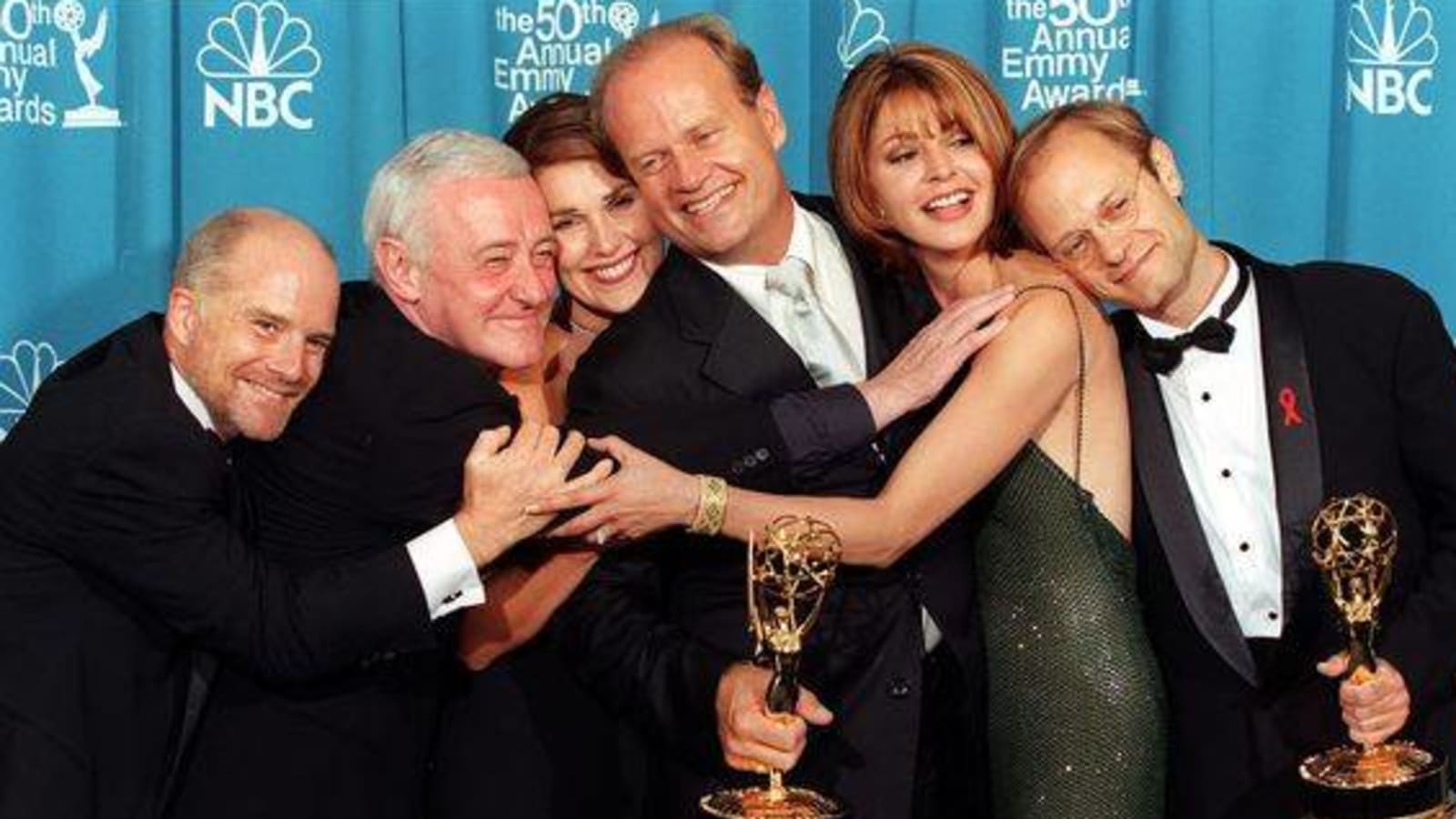
How have these Emmy wins held up over the years?
As with any awards show, the Emmys are full of pleasant surprises, horrible indignities and downright head-scratchers. And yet what might seem right or wrong or inexplicable at the time could very well look entirely different when reconsidered years later. We've cast our gaze back into the past and singled out honorees who stood out for one reason or another, and we've asked, "How have they held up over time?" Are they as deserving/undeserving/weird as they seemed in the moment? The answers may shock you. Apologies to David E. Kelley in advance. Nothing personal, dude.
1974: Alan Alda and Mary Tyler Moore, Actor and Actress of the Year
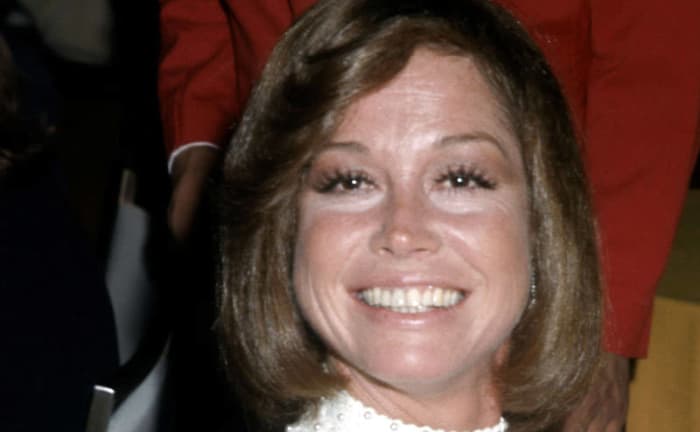
In 1974, the Television Academy of Arts & Sciences decided in its ultimate wisdom that regular old Emmys were not enough to draw big ratings. It needed something extra special to get viewers to tune into the crummy awards ceremony. It needed…Super Emmys! The idea was to have the winners in the comedy and drama categories square off for the ultimate prize. Fourteen of these bad boys were handed out in total (mostly in major categories), and it was a major disaster. Super Emmy winners Alan Alda and Mary Tyler Moore threatened to resign from the Academy if they were ever handed out again. But if ever two performers deserved a Super Emmy, it was these two.
1979: "Steve and Eydie Celebrate Irving Berlin" — Best Variety Show

Even way back in 1979, this was the kind of television special that would get lampooned as out-of-touch on sketch shows like “Saturday Night Live” and “The Muppet Show” — both of which were nominated this year. This category has always given older, more conservative Academy members the chance to rebel against what’s hip, and in 1979 there was no one less hip than Steve Lawrence, Eydie Gorme and the music of the 90-year-old Irving Berlin.
1982: "Night of 100 Stars" — Best Variety Show

Get a bunch of stars together on the same stage as a means of raising money for the Actors Fund, and you’ll put yourself in prime position to win an Emmy. This live three-hour special was probably a coordination nightmare for the producers (some of these stars were really old, and it's likely some were really drunk), but there are technical awards to recognize the difficulty of getting 100-plus stars in front of a television camera before cutting away to the 11 o’clock news. This win looks even more absurd when you realize “SCTV,” maybe the greatest sketch show of them all, was nominated.
1984: "Something About Amelia" — Best TV Movie

"Something About Amelia" was a good made-for-TV movie about a difficult subject (incest). ABC was praised for its bravery in tackling the topic in a sensitive manner, and, well, no one has discussed the film since. Meanwhile, its most serious competition, “The Day After,” which depicted the effects of a full-scale nuclear war, shook up the entire country in a way no television drama had done before. The movie was as brutal as anything aired on network television, and it allegedly moved President Ronald Reagan to pursue disarmament talks with the U.S.S.R.
1987: "The 41st Annual Tony Awards" — Best Variety Show

Awards shows should never win awards. People watch them for the potential of an upset or an unscripted flub, and unless something utterly insane happens (like the “Moonlight”/”La La Land” fiasco), they’re generally castigated for being long and self-important. The 1987 Tony Awards were notable because viewers got a look at the dazzling stagecraft of “Les Miserables,” but this would’ve been the perfect year to honor “Late Night with David Letterman,” which never won the top Emmy in its category.
1988: "thirtysomething" — Best Writing (Drama)

Time has not been kind to the Baby Boomer dramedy “thirtysomething.” Created by Ed Zwick and Marshall Herskovitz, the series centered on yuppies trying to stay in touch with their free-spirited protest-era rebellion. It resonated for yuppies at the time, which means it is now unbearable. The episode “Business as Usual” (scripted by Herskovitz and Paul Haggis) had no business winning the Best Writing Emmy in any year, but to steal the trophy from the classic final episode of “St. Elsewhere” (one of the all-time great series finales) feels actionable.
1989: Richard Mulligan, Best Actor (Comedy)

This is as confounding today as it was in 1989. Looking over that year’s Best Actor in a Comedy nominees, there was a clear opportunity for the Academy to finally honor Ted Danson, who’d been passed over six years in a row for playing Sam Malone on “Cheers.” Michael J. Fox had won the last three years, Richard Mulligan had won in 1980 (for “Soap”), while John Goodman and Fred Savage were just getting started on “Roseanne” and “The Wonder Years” respectively. Instead, the Emmy went to Mulligan for being Mulligan on the consistently mediocre “Empty Nest.” Danson won the next year.
1990: "L.A. Law" — Best Drama

Maybe the best way to ensure you won’t win an Emmy is to create a show that significantly alters the medium of television. Or maybe just don’t make great TV while there’s a David E. Kelley-run show on the air. “Twin Peaks” hit the dreaded double-whammy of knocking Emmy voters off-balance in a year when there was a viable Kelley alternative. Compared to the second (and final) season, the first season of “Twin Peaks” plays now like an aggressively quirky nighttime soap opera. As for the fourth season of "L.A. Law" (which won Best Drama), it’s still really good! It’s a bit like “Oliver!” winning Best Picture in the year of “2001: A Space Odyssey.”
1990: Alex Rocco, Best Supporting Actor (Comedy)

In a year when the category was loaded with hammy favorites from top-rated shows like “Cheers,” “Coach” and “Murphy Brown,” it was a shock to see veteran character actor Alex Rocco sneak out a win for his performance on the canceled sitcom “The Famous Teddy Z.” Probably best known for catching a bullet in his eye as Moe Green in “The Godfather,” this now stands as a well-deserved lifetime achievement award for Rocco, who passed away in 2015. So many character actors go their whole career without this kind of acknowledgment. This was a win for all of them.
1990: "Equal Justice" and "thirtysomething" — Best Directing (Drama)

“Twin Peaks” getting completely shut out of the major awards at the Emmys wasn’t a surprise, but to look back and see television hacks Thomas Carter and Scott Winant splitting the Best Director award over David Lynch is infuriating. The Academy really used to bristle when big-time filmmakers deigned to do television, so this wasn’t a surprise. Still, either of the nominated L.A. Law episodes would’ve been at least excusable on a quality TV level. What a load of garmonbozia.
1992: "Murphy Brown" — Best Comedy

“Murphy Brown” had won two well-deserved Emmys for Best Comedy prior to 1992 and probably would’ve lost this year had then Vice President Dan Quayle not sounded off on the inappropriateness of Murphy’s single-motherhood. Suddenly the show was a political lightning rod, and Emmy voters responded by defiantly naming the show Best Comedy over the third (and first legitimately brilliant) season of “Seinfeld.” This decision has aged as well as Dan Quayle’s political career. With the show returning last fall to CBS, "Murphy Brown" fans had a chance to see if the show could get another rise out of the White House.
1993: Roseanne Barr, Best Actress (Comedy)
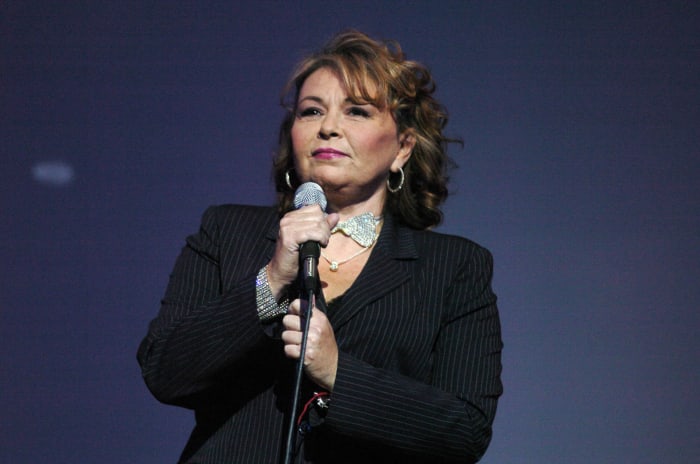
Barr won her first and thus far only Lead Actress in a Comedy Series Emmy for her critically lauded work on the sixth season of "Roseanne." Regardless of all that's gone down last year, there's no denying that based strictly on the quality of her performance, she was long overdue for the honor at this point in her show's run. Of her four competitors that year, the only other reasonable selection would've been the erstwhile Mrs. Cunningham, Marion Ross, as the tough Jewish grandmother on Gary David Goldberg's wonderful "Brooklyn Bridge."
1994: "Picket Fences" — Best Drama

You could pick a year that “Picket Fences” won the Best Drama Emmy and argue that it was undeserved. The show won early acclaim for being an audience-friendly slice of quirk; it was the unchallenging, narratively unambitious version of “Twin Peaks” that respected TV critics' milquetoast sensibilities. But its 1994 win over the inaugural season of “NYPD Blue” was a farce. Perhaps older Academy members were offended by the cop show’s standards flouting (brief) nudity and (light) profanity. No matter. What looked bad then stands as a miscarriage of justice now.
1997: "Ellen" — Best Writing (Comedy)

“The Puppy Episode” of “Ellen” was about as solid of a lock for Best Writing (Comedy) as the Emmys have ever seen. This was the episode where Ellen DeGeneres’ character came out as a lesbian, which ignited a firestorm of controversy so intense that ABC had to slap a special parental advisory on it. It was a hugely important cultural moment for the United States, and for many in the LGBTQ community, cathartic (even though the shock of the announcement had been diminished by DeGeneres’ interview with Time Magazine two weeks earlier). As an hour of television, it is significant. But would you rather watch “The Yada Yada” episode of “Seinfeld” again (which was nominated)…?
1998: "Frasier" — Best Comedy

Emmy history was on the line in 1998 as “Frasier” went for its unprecedented fifth straight Best Comedy win. As with its predecessor, “Cheers,” “Frasier” never had a bad season (though the recently rumored revival would put that to the test); a vote for “Frasier” in pretty much any year was wholly defensible. But it was due for a loss, and that loss would’ve been a lot more palatable in 1998 when “The Larry Sanders Show” was nominated for its superb final season. The show was nominated in every year of its existence and never won. Breaking up the Crane family’s run would’ve allowed “Frasier” to win the following year over the trendy and awful “Ally McBeal.”
1999: "The Practice" — Best Drama

Get you an Academy of Television professional who loves you like Emmy voters love David E. Kelley. His shows had been dominating the Emmys and the Nielsen ratings for several years when an upstart HBO show called “The Sopranos” turned up in 1999 and changed the medium forever. The show was an immediate phenomenon, but a majority of Emmy voters were unconvinced because new things are scary. Though James Gandolfini and Edie Falco were rightfully recognized as Best Actor and Best Actress, Kelley’s “The Practice” was named Best Drama. The Academy erred. Egregiously.
2000 & 2001: "Malcolm in the Middle" — Best Writing, Comedy

“Malcolm in the Middle” was an intermittently clever show that turned Frankie Muniz into a child star and introduced the world to the wondrously talented Bryan Cranston. But the writing was nowhere near the level of Paul Feig’s scripts for the pilot and final episodes of “Freaks and Geeks,” which despite the show running for only one season, were nominated in separate years due to NBC’s scheduling wizardry (that helped get the show canceled). “Freaks and Geeks” has only gotten better with age, while “Malcolm in the Middle” is…still an intermittently clever show.
2002: "24" — Best Writing (Drama)

This category was an intriguing competition among three critically acclaimed new shows (“24,” “Alias” and “The Shield”) and two firmly established Emmy powerhouses (“ER” and “The West Wing”). The award went to Joel Surnow and Robert Cochran for the pilot episode of the innovative “24,” and the win holds up just fine considering that the series peaked in its first season. But as a standalone hour of television, the best choice was Shawn Ryan’s bruising pilot for “The Shield.” Runner-up was Aaron Sorkin’s “Posse Comitatus,” which featured President Bartlet’s hugely satisfying kiss-off to Gov. Ritchie.
2005: "Lost" — Best Drama

With “The Sopranos” on an extended hiatus, the Emmys had a chance to crown a new Best Drama winner or do the Emmy-est thing and throw old reliable “The West Wing” an undeserved fifth trophy. To everyone’s delight, it did the former and honored the television’s latest sensation, “Lost.” At the time this was considered something like justice; in retrospect, that Emmy belonged to the exquisitely written and performed second season of “Deadwood.”
2007: James Spader, Best Actor (Drama)

“The Sopranos” entered its final Emmy ceremony favored in most of the major categories, though there was still controversy and there was dissatisfaction following its jarring cut-to-black conclusion. Would Emmy voters punish the show by denying it Best Drama or Best Writing? Nope. They stuck it to James Gandolfini and Edie Falco instead. Falco was up against national treasure Sally Field, so her defeat was at least foreseeable. But Gandolfini going down to James Spader for “Boston Legal?” It was stunning then and has aged as well as a random “Boston Legal” rerun.
2011: Kyle Chandler, Best Actor (Drama)
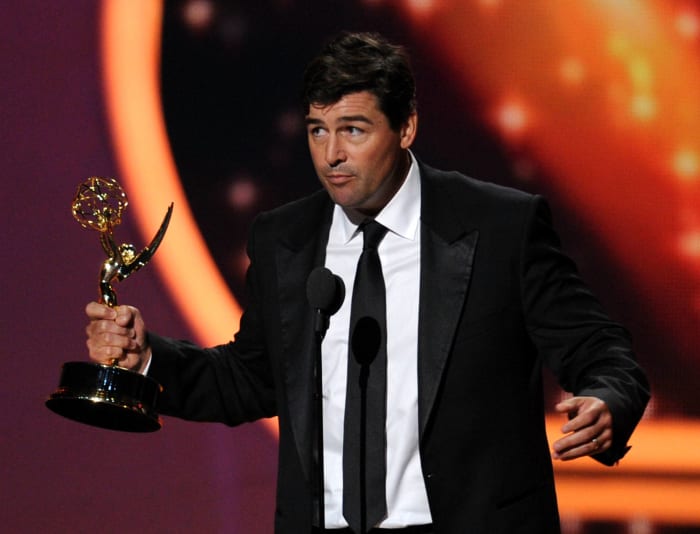
Kyle Chandler is a wonderful actor and by all accounts, a sterling human being. But even the most die-hard “Friday Night Lights” fan knew that the 2011 Emmy belonged to Jon Hamm. Not only had the actor turned in his best “Mad Men” performance in that season’s episode “The Suitcase,” but his Emmy bête noire, Bryan Cranston, wasn’t nominated due to “Breaking Bad” taking a lengthy break. Fortunately everything worked out. Chandler, who was excellent in his final season of the high school football drama, was more than worthy of recognition, while the Academy finally did right by coughing up Hamm’s Best Actor Emmy four years later. Everyone can and should feel good about this win.
2011: "Friday Night Lights" — Best Writing (Drama)

Kyle Chandler beating out Jon Hamm for Best Actor in 2011 was a near catastrophe for fans of both “Friday Night Lights” and “Mad Men,” but the Emmys eventually voted their way out of this conundrum. They could not, however, atone for this goof. Again, the series finale of “Friday Night Lights” is terrific; it’s an emotionally satisfying farewell to the good folks of Dillon, Texas. But “The Suitcase” episode of “Mad Men” is an hour of peerless writing from Matthew Weiner. The relationship between Don Draper and Peggy Olson was the emotional core of the show, and this episode drills right to the center of it.
2012: Julie Bowen, Best Supporting Actress (Comedy)

Sofia Vergara got the spotlight as Ed O’Neill’s English-mangling wife on “Modern Family,” but Julie Bowen was the show’s deadly secret weapon…when it was good. In 2012 it went from good to atrocious. But Bowen nonetheless won her second Best Supporting Actress Emmy, which should’ve gone to the great Kristen Wiig for her final season on “Saturday Night Live.”
2014: Jim Parsons, Best Actor (Comedy)

It’s not Jim Parsons’s fault that “The Big Bang Theory” is a terrible sitcom. It’s broad, hackneyed and panders to nerds without understanding them; in other words, it's par for the course for a Chuck Lorre-produced comedy. But let’s be fair to Parsons: He does precisely what is required of him, and he does it very well. But to give him his fourth Emmy in five years for hitting the same note rang false in a year when his competition (most notably William H. Macy) had done far more daring and original work.
2014: "Modern Family" — Best Comedy
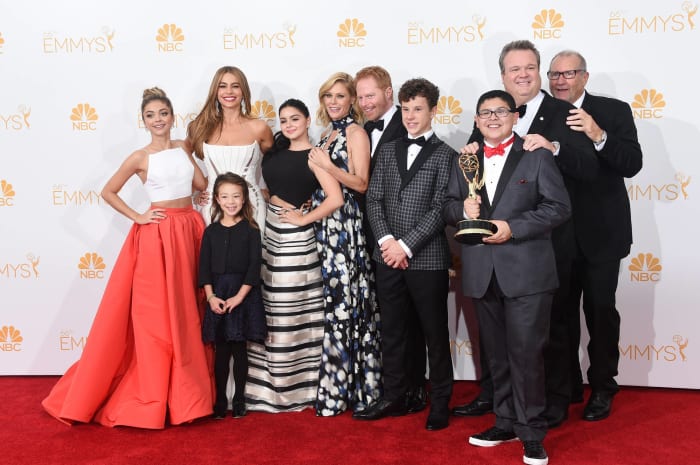
“Modern Family” is about to enter its 10th season, but it hasn’t been worth watching since Obama was midway through his first term. It had become unwatchable by Season 5, but Emmy voters found it more worthy than the superb quartet of “Veep,” “Louie,” “Orange is the New Black” and “Silicon Valley." This was the comedy’s fifth and final Emmy win, and it’s the most infuriating even though the Academy finally wised up to the greatness of “Veep” and “Orange Is the New Black” (though the latter never topped its first season).
2015: "Game of Thrones" — Best Directing (Drama)
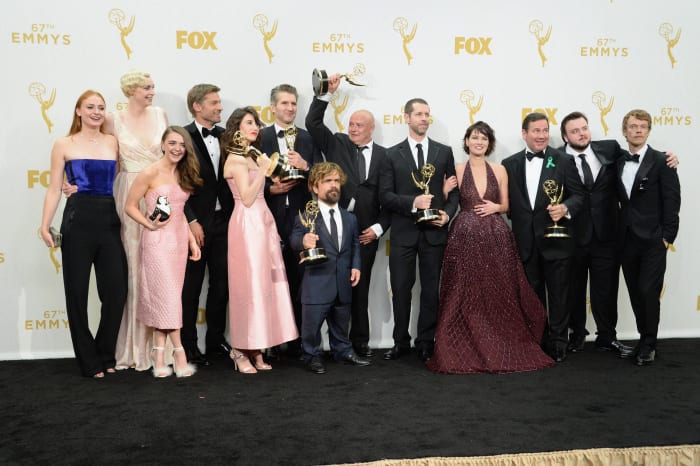
Logistically “Game of Thrones” is a stunning achievement for television. The multiple storylines spanning wildly different terrains and climates offer challenges more akin to epic filmmaking than episodic TV. But as the show stumbled narratively in Season 5, the directors reverted to formula; there wasn’t much in the way of visual splendor or grace in any of these 10 episodes. Meanwhile, Steven Soderbergh was reinventing period dramas with “The Knick” (and directing all 10 episodes to boot). To be fair, the grisly realism of the show probably cost him the Emmy.
2017: "Saturday Night Live" - Best Variety Show

"Saturday Night Live" might've felt like the righteous choice for its weekly satiric broadsiding of President Donald Trump (who, in turn, frequently tweeted his displeasure with the show's depiction of him), but it all felt rather hollow — especially in light of Lorne Michaels' decision to let Trump host the show as a candidate in 2015. Two years later, it seems unconscionable that the Emmys didn't opt for the superb second season of "Documentary Now!", which found the ex-SNL quartet of Bill Hader, Seth Meyers, Fred Armisen and John Mulaney brilliantly skewering classic works of nonfiction like "Salesman", "Jiro Dreams of Sushi" and "The Kid Stays in the Picture".
Jeremy Smith is a freelance entertainment writer and the author of "George Clooney: Anatomy of an Actor". His second book, "When It Was Cool", is due out in 2021.
More must-reads:
Trending in Entertainment
Customize Your Newsletter
 +
+
Get the latest news and rumors, customized to your favorite sports and teams. Emailed daily. Always free!
Use of this website (including any and all parts and
components) constitutes your acceptance of these
Terms of Service and Privacy Policy.

